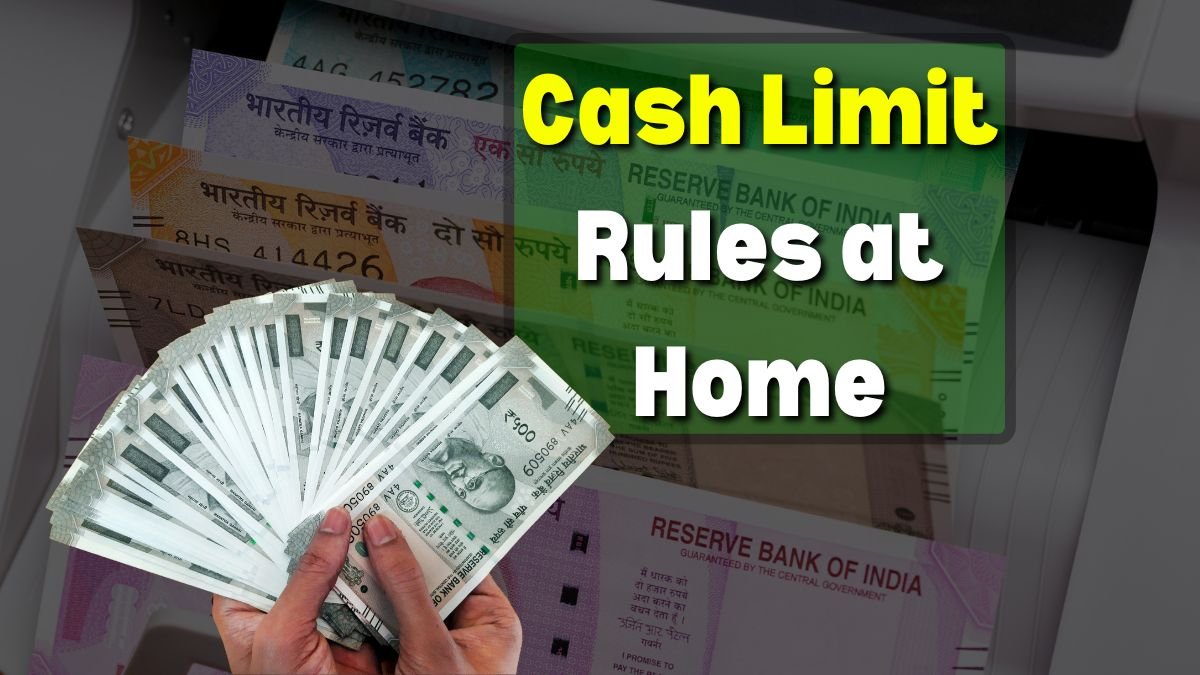Cash Limit RULES: In a world seemingly bent on 100% digital payments and UPI transactions in India as the buzzword of the moment, cash seems to be holding its fort against this onslaught, as many prefer that good old aura of familiarity and comfort. Whether for day-to-day business expenses, immediate need, or just giving support to family members who don’t understand technology, many households in India are in the habit of storing cash at home.
But here is the catch: If you are very much into having your loaded soc filler somewhere at home, it becomes very important for you to know the cash that is legally allowed in Indian homes. Any negligence in this regard could warrant severe consequences in the form of a notice from the Income Tax Department, consequent monetary fines, and in some extreme cases, even arrest.
So, let’s clarify some details as far as important things you need to know.
Is There a Limit on Cash to Keep at Home?
Surprisingly enough, the Income Tax Department has put no limit whatsoever concerning the cash a person can keep at home for any reason whatsoever. You are allowed whatever you want.
It is entirely legal to keep any amount of cash, provided it stands accountable with you regarding the source of income. Should there ever be an inquiry, investigation, or income tax raid, you would be asked to provide Income Tax Return (ITR) filings along with a whole host of other credible documents justifying the legitimate acquisition of that money.
What Happens If You Can’t Prove the Source of Cash?
This is where things may go wrong for you.
If you have unwanted cash undeclared and which you cannot explain with documents, such money will turn to be classified as undisclosed income, and hence something will have to happen in this case:
- The Income Tax Department may seize the money.
- You will pay a huge fine, which sometimes amounts to the value of the cash seized.
- The department will also take legal action with possible arrest in extreme cases.
You must have read in the newspaper where raids at the homes of businessmen or officials produced innumerable lakhs or crores in cash. Oftentimes, those in problematic situations could not furnish a legitimate source, resulting in serious consequences.
Important Cash Transaction Rules You Must Know
Although there are practically no limits on the money that can be stored at home, the Income Tax Act has defined limits on cash transactions to prevent their misuse:
- PAN Card Essential: You must use your PAN card if you withdraw or deposit an amount over ₹50,000 in one transaction.
- TDS on Bigger Withdrawals – Section 194N: If you have not filed your ITR for the last three preceding years, there will be a TDS of 2% on cash withdrawals of more than ₹20 lakh from a bank account within a financial year. For withdrawals beyond ₹1 crore, TDS may even be charged at 5%.
- Cash Withdrawals If No ITR: If your ITR filing is current, you may withdraw in cash up to ₹1 crore in a financial year without the other triggering TDS. Any amount over that will attract TDS at the rate of 2%.
Concluding Thoughts
It is not illegal to keep cash at home; however, keeping unaccounted cash is a huge risk. If you decide to keep large amounts of cash at home for emergencies or business needs, such cash must be:
- Properly documented
- Declared in your ITR
- Withdrawn following legal transaction rules


